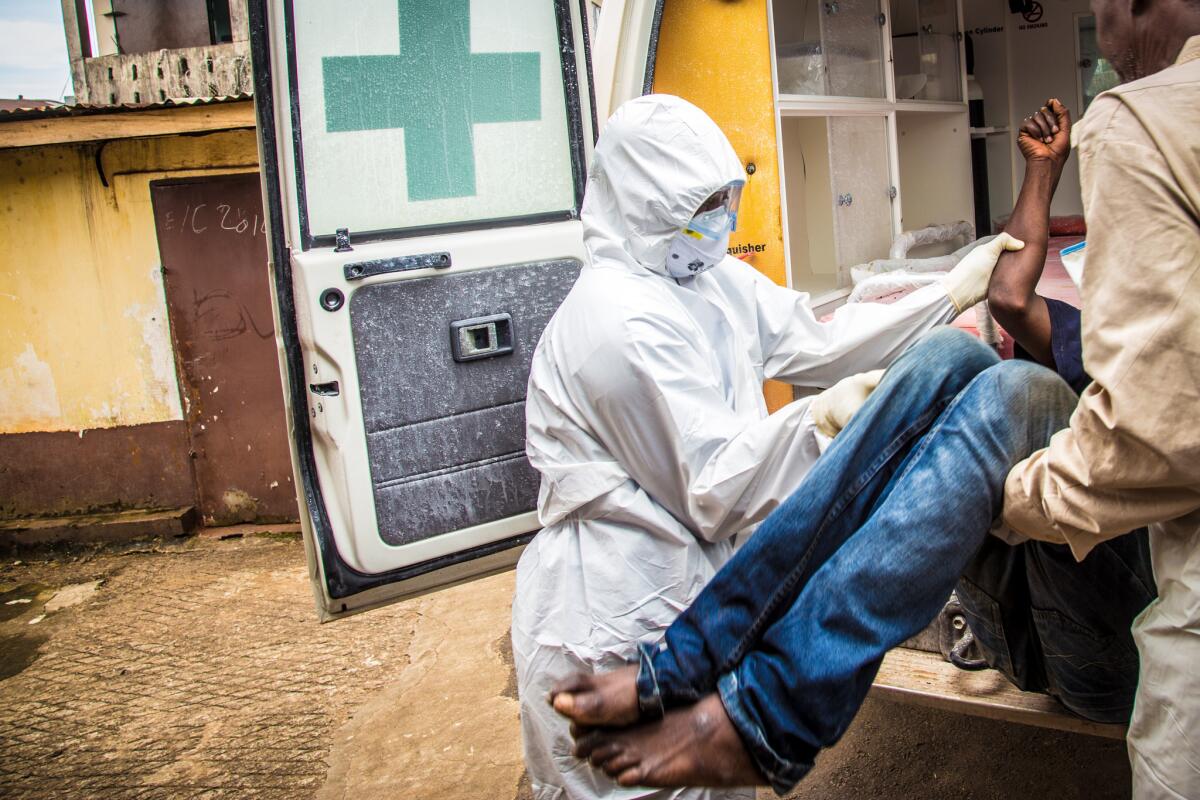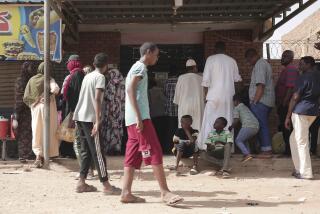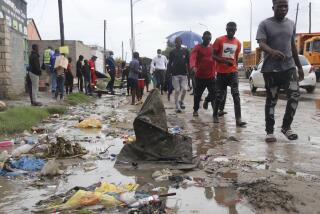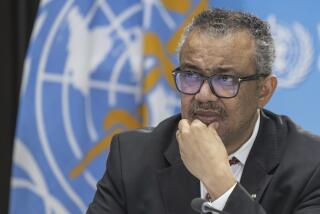WHO report: ‘Lethal, tenacious, unforgiving virus’ fueled Ebola epidemic

- Share via
Fear and misunderstanding of a “lethal, tenacious and unforgiving virus” have given rise to the world’s largest and most enduring Ebola epidemic, according to the World Health Organization.
A year after the outbreak claimed its first victim in a small farming village in Guinea, the United Nations health organization released a 14-paper assessment this week of the continuing struggle to eradicate Ebola in West Africa.
Three of the world’s poorest nations make up the epidemic’s “hot zone,” and of those, only Liberia shows signs that it “was getting an upper hand on the virus,” the WHO said.
In neighboring Sierra Leone and Guinea, community resistance to public health initiatives and government directives continue to hamper control efforts.
“The persistence of infections throughout 2014 had two causes,” the WHO report said. “The first was a lethal, tenacious and unforgiving virus. The second was the fear and misunderstanding that fueled high-risk behaviors. As long as these high-risk beliefs and behaviors continue, the virus will have an endless source of opportunities.”
The assessment comes as the WHO Executive Board prepares to meet Jan. 25 to discuss what needs to be done to end the epidemic. To date, the WHO has recorded 21,329 cases attributed to Ebola virus disease and 8,444 deaths.
“Denial, traditional burials and fear” were still driving spread of the disease in Freetown, Sierra Leone’s capital, and adjacent districts, where transmission remains intense, the WHO wrote. In Guinea, where the first case is believed to have been an 18-month-old boy who was bitten by an infected bat, a rioting mob delayed the scheduled opening last month of a 50-bed treatment center in its capital, Conakry.
“Control efforts continued to face a high level of community resistance, especially to contact tracing and safe burials,” the report said.
The Ebola virus -- which causes fever and intense diarrhea and vomiting -- is transmitted by direct contact with an infected person’s bodily fluids. West African burial rituals often invite such contact.
“In Liberia and Sierra Leone, where burial rites are reinforced by a number of secret societies, some mourners bathe in or anoint others with rinse water from the washing of corpses,” the report said.
The WHO assessment notes that work is progressing on the development on two potential vaccines and two potential drug treatments.
The experimental medications remain under study, however, and the death rate among Ebola patients in Africa holds steady at 71% -- far higher than the 26% death rate among those cared for in Western nations.
“Getting case fatality down in affected countries is an ethical imperative,” the WHO report said.
A vaccine candidate under development by the pharmaceutical firm GlaxoSmithKline is scheduled to begin Phase 2 efficacy trials this month, while millions of doses of another vaccine developed by Merck could be available early this year if it is shown to be safe and effective.
But WHO officials said it was important to carefully manage the public’s expectations for these vaccines. Even if they work, they may only confer short-term protection, and a follow-up booster dose might be needed.
Further complicating their potential employment in the epidemic is the fact that the vaccines need to be stored at 112 degrees below zero Fahrenheit.
A panel of WHO experts had reviewed data on a number of experimental drug treatments and eventually decided that only two demonstrated sufficient activity in nonhuman primates -- favipiravir and brincidofovir.
Favipiravir entered clinical trials in early December in Guinea, according to the WHO, and clinical evaluation of brincidofovir is scheduled to begin early this year in Liberia.
Clinical trials for experimental convalescent blood therapies also began in Liberia and Guinea in December. The use of Ebola survivor blood transfusions is also occurring in Sierra Leone, but not in the form of a clinical trial, the WHO reported.
Follow @montemorin for science news







